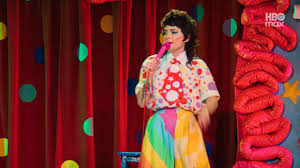Fire Island 2022 Movie Review
Gay, thirtysomething and, in his words, “terminally alone, Howie (Bowen Yang) has based all his thus far unrealised ideals of romance on the heterosexual romantic comedies he grew up watching on screen: opposites attracting, meeting cute and making mad dashes for each other at the airport. “Shit like that doesn’t happen in real life,” counsels his best friend Noah (Joel Kim Booster), though it’s not as if Howie needs reminding – he just wants “the romcom stuff” anyway.
Andrew Ahn’s sunny gay buddy movie Fire Island negotiates that fundamental conflict in its characters while also falling prey to it as a film. Mapping conventionally cheesy romantic comedy beats on to less Hollywood-dictated homosexual terrain, it also aims to deliver some tough truths about the modern gay dating scene between the sweetened sunset smooches and all’s-well-that-ends-well optimism of sundry past vehicles for Sandra Bullock or Meg Ryan. The result, like those films, is more aspirational than it is convincing.
Years before, Asian Americans Noah and Howie bonded over their mutual status as outcasts on a scene where “no fats, no fems, no Asians” is all too common a line on Grindr profiles. Since Howie moved from New York to San Francisco, however, their lives have diverged somewhat: while he’s remained a shy wallflower, Noah has evolved into a gym-built stud, cycling through one-night stands with casual ease. An annual week-long vacation on New York’s gay mecca of Fire Island has become the binding fixture of their friendship; together with three thinly drawn friends, they crash the holiday home of lesbian pal Erin (Margaret Cho), and spend their days drinking, dancing and cruising as if there’s no tomorrow – or at least no looming middle age.
Casual sex comes easily to Noah, though not to Howie. As the latter confesses his insecurities and misgivings about the whole trip, Noah resolves to put his own sex life on ice to get his friend laid – something that Charlie (James Scully), a sweet, preppy doctor they run into on their first night, seems happy to help with. But hanging out with Charlie also entails entertaining his wingman Will (Conrad Ricamora), a stiff, reserved but coolly handsome lawyer to whom Noah takes an instant dislike – you know, the kind that Lizzie Bennet first took to Mr Darcy, and we all know how that turned out.
Yes, Fire Island is yet another contemporary reworking of Pride and Prejudice – not that Booster’s quippy screenplay trusts the audience to make the Jane Austen connection for themselves. The novel’s first line is also the film’s, quoted by Noah in his running, rather cloying narration, before a sassy rejoinder: “No offence to my girl Jane, but that sounds like some hetero nonsense to me!”
It’s a naff start, indicative of a faintly yassified tone to the dialogue throughout, but Fire Island improves when it sporadically shows its teeth. Booster picks at sharper, more sensitive subjects like racism within the queer community or the toxicity of body-beautiful culture, while fleeting observational asides speak of the first-hand queer knowledge that Hollywood’s attempts at inclusion tend to lack. (This is surely the first film in which one character offers to trade a Crest tooth-whitening strip for a PrEP tablet.) In such moments, beneath Fire Island’s fluorescent, crowd-pleasing surface, it’s easy to recall the greater nuance and melancholy of Ahn’s past films Driveways and Spa Night.
Yet the film’s moments of truth or constantly countered by moments of compromise: for every wicked detail targeted directly at the queer target market, there’s a lumpen passage of explanation for the straights and squares. (Noah’s narration pedantically expands the initials by which assorted drugs are known; the trailblazing history of Fire Island is unpacked in a PowerPoint-like photo montage.) Thorny social tensions are elided for the sake of simpler happy endings, while even on matters of representation and inclusivity, the film hasn’t the full courage of its convictions: it’s hard not to notice that the film’s lone Black character, Max (Torian Miller), is the most sketchily drawn and narratively incidental of the friend group.
Chalk it up as a shallower victory for equality, then. Fire Island is colourful, digestible and gamely acted by an ensemble of roundly good-looking comic performers: rather like the similarly polished, perky Love, Simon, it proves that gay people can have their cheery mainstream fantasies too, even if its conclusion steers narrowly clear of certain “hetero nonsense”. Marriage isn’t the be-all and end-all here; togetherness is, particularly when it means dancing in a group to Donna Summer, and that’s about the most tweaking Ahn and Booster do to a trusty formula. By the end of a breezy 100 minutes, you may well wind up wanting what these bright, attractive characters have; you’re also likely to think that shit like this, well, doesn’t happen in real life.




